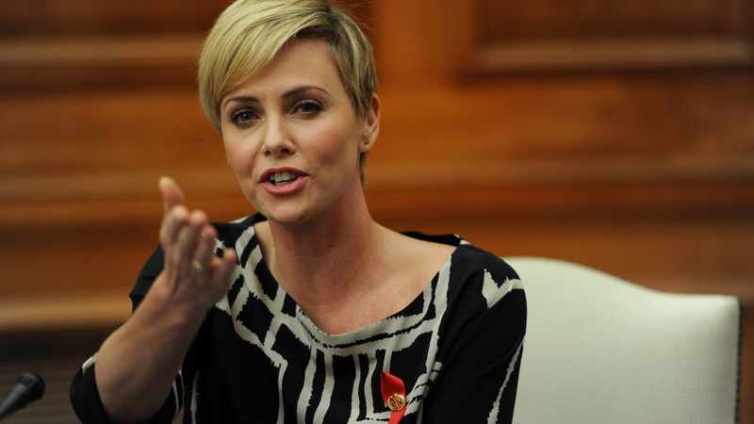Hollywood star Charlize Theron has faced a mountain of criticism for calling her mother tongue Afrikaans "a dying language".
Theron joked it was spoken by "about 44 people" and was "not very helpful".
She made the comments on the SmartLess podcast, saying she grew up in South Africa speaking only Afrikaans before learning English aged 19, which is why she speaks it with an American accent.
Some of the millions who speak Afrikaans in South Africa were furious.
Steve Hofmeyr, who sings in Afrikaans, says the language boasts some of the best swear words and tells TimesLive that Afrikaans is "alive and well". He also decried the move to change the teaching medium from mainly Afrikaans to English at universities that were historically Afrikaans.
South African website News 24 quotes another critic, the actor Tim Theron, saying Afrikaans is "not dying... there are new songs and poems being written every day, movies made etc".
Some commenters on Twitter accused have Charlize Theron of being "ashamed of her roots" or seeking validation from black people, while others welcomed her words because "Afrikaans has a strong association with apartheid" and was "once used to oppress Africans".
Afrikaans is highly politicised in South Africa because of its role during the decades of white-minority rule when a series of racist policies, known as apartheid, were introduced to suppress the country's black majority.
"Afrikaans is an African language that was formed here in Africa, but it became a language that polarised people under apartheid," Prof Pitika Ntuli, an artist and cultural analyst, tells the BBC.
The imposition of the language in schools was the main reason behind the 1976 Soweto uprising against the apartheid regime, in which at least 170 people were killed, mostly schoolchildren.
It is the mother tongue of 13% of South Africans - mainly white South African descendants of Dutch, German and French settlers who arrived in the 17th Century - as well as mixed-race people, who are known as coloureds in the country.
During apartheid only English, Dutch and Afrikaans were official state languages and indigenous languages were suppressed, but when white-minority rule ended in 1994 South Africa adopted 11 official languages. These are Afrikaans, English, isiNdebele, isiXhosa, isiZulu, Sepedi, Sesotho, Setswana, Siswati, Tshivenḓa and Xitsonga.
"I love the language but I loathe the fact that it was used to oppress us, that it represents oppression and evokes traumatic memories and experiences," says the BBC's Audrey Brown.
Many South Africans today say not enough progress has been made towards true language equality, including students who are campaigning for more university classes in African languages.
But that does not mean Afrikaans is a dying language, says Prof Pitika Ntuli.
Like Hofmeyr, he loves how expressive and poetic and Afrikaans can be. Plus it is "very good for insulting people - that's why it is so beautiful," he laughs.
"Charlize Theron must come back and stay here for a bit of time, it might help her!"
Latest Stories
-
Tesla shares tumble as Trump-Musk feud erupts
27 minutes -
Trump and Musk enter bitter feud – and Washington buckles up
39 minutes -
Footballer jailed for £600k drugs smuggling plot
50 minutes -
Lamine Yamal shines as Spain beat France in nine-goal thriller
1 hour -
Gauff battles past Keys to reach semi-finals
1 hour -
Gen Z aim to deny history-chasing Djokovic
1 hour -
Sabalenka takes out Swiatek to reach French Open final
2 hours -
Dumsor levy: Sulemana Braimah demands accountability for GH¢26bn fuel taxes paid in 2024
3 hours -
Dumsor Levy: Reset Ghana by ending waste, not taxing fuel, says Sulemana Braimah
3 hours -
$48m jute sack contract signed in Dec 2024 despite 110,000 unused bales – Acting Cocobod CEO
4 hours -
Acting CEO Randy Abbey says balancing the books will take time as Cocobod drowns in debt
4 hours -
‘We are chased every day’ – Cocobod boss paints bleak picture of mounting $33bn debt
5 hours -
Ken Ofori-Atta listed on INTERPOL Red Alert over “using public office for profit”
5 hours -
World Vision empowers health workers in Agortime Ziope with life-saving infection control training
5 hours -
Plan International Ghana launches She Leads Social Movement to sustain girls’ rights advocacy
5 hours

